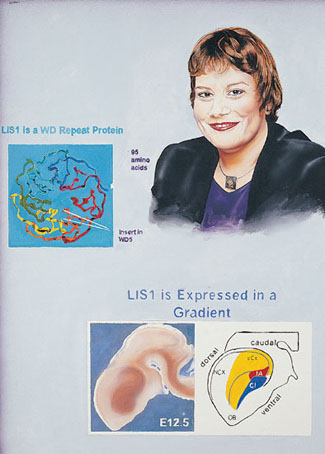Are you a journalist? Please sign up here for our press releases
Subscribe to our monthly newsletter:

At what stage in the development of an embryo does the brain begin to develop? And what can go wrong? Prof. Orly Reiner of the Molecular Genetics Department is seeking the answers to these questions by focusing on genes that give rise to smooth brain syndrome (or lissencephaly), a severe form of retardation that results from a lack of folds in the brain.
Ten years ago Reiner found a gene that is a critical player in this disorder. In people born with smooth brain syndrome, this gene, called LIS1, is mutated. Reiner set out to determine this gene's role in the body and found that it is involved in the production of microtubules – the "tracks" within the cell that enable transport of supplies to its different parts. These tracks also provide the cell with structural support. When this gene is mutated, the microtubules are misshapen, possibly leading to the malformation of neurons in the brain cortex. In addition, in the developing brains of mice embryos, mutations in the gene were found to cause faults in neuron migration.
The researchers are now trying to elucidate the function of the protein with which the gene interacts. "LIS1 interacts with 10 different proteins," says Reiner. "Are they all necessary for normal brain development?" She hopes the research will yield a better understanding of the disorder and, ultimately, of processes involved in the development of the brain.